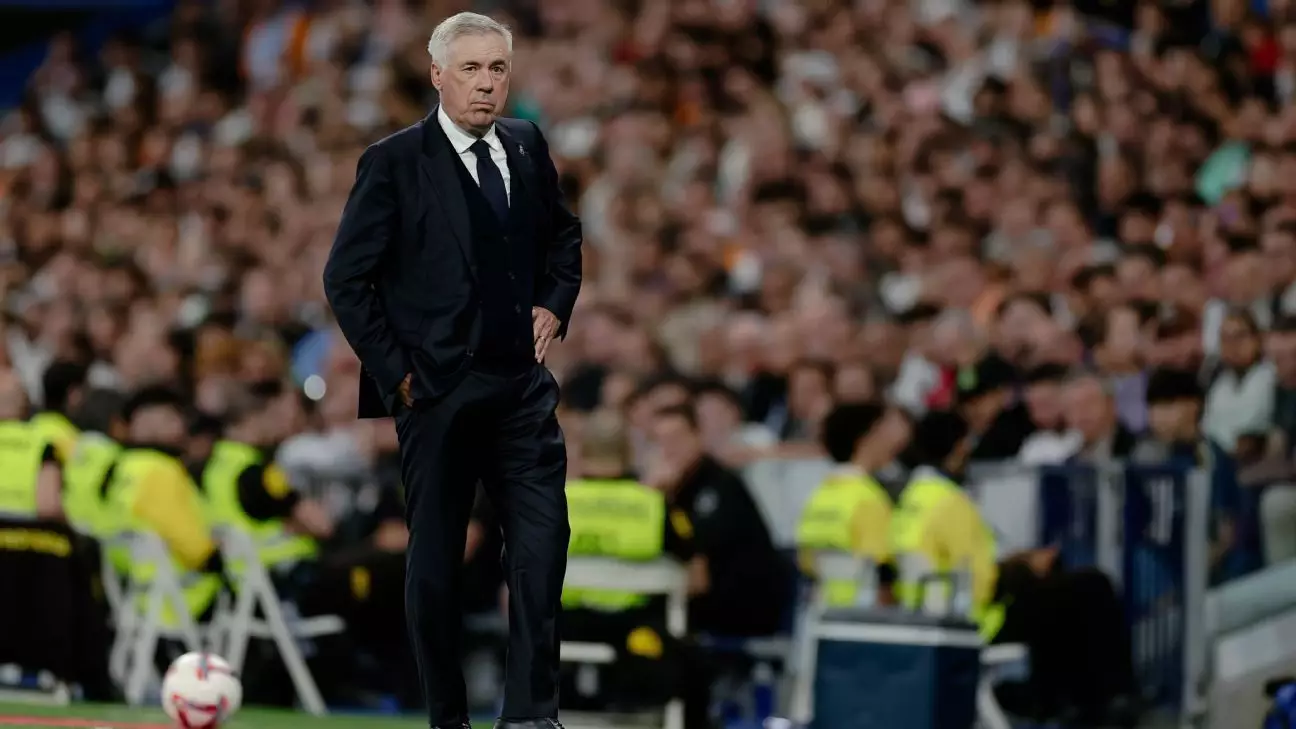The recent flash floods in Valencia, which tragically claimed the lives of at least 217 individuals, have shocked the nation and raised important questions about the place of sports amid such devastating human loss. In light of the situation, Real Madrid’s head coach, Carlo Ancelotti, has voiced his concerns regarding the continuation of football matches in Spain, emphasizing the need for empathy and responsibility in the face of adversity. The juxtaposition of human tragedy with the world of sports sheds light on the often-overlooked moral dilemmas faced by organizations within the athletic community.
In the wake of the floods, several LaLiga fixtures were postponed, including the highly anticipated match between Real Madrid and Valencia. However, contrary to Ancelotti’s assertions, eight matches in Spain’s top division proceeded as scheduled, creating an uncomfortable dissonance between the realities of the affected communities and the ongoing celebrations of sport. Ancelotti remarked that the choice to continue with matches contradicted the mood of sorrow permeating throughout the country, suggesting a disconnect between governing bodies and the sentiments of players and coaches alike. This raises crucial questions regarding the decision-making process in professional sports. Are these decisions motivated by commercial interests, or is there a genuine commitment to the sport’s human aspect?
Professional athletes are often expected to compartmentalize their emotions for the sake of performance. Ancelotti candidly shared the emotional challenges faced by him and his players, stating, “Your head isn’t in your work.” This quote encapsulates the profound impact that societal tragedies can have on mental focus and teamwork. With the well-being of a nation on their minds, how can players be expected to deliver their best while grappling with the repercussions of such devastation? The pressure to perform in their respective arenas becomes an almost surreal juxtaposition against the backdrop of mourning and recovery taking place in the communities they represent.
Many voices in the football community, including players and coaches, expressed similar sentiments to that of Ancelotti, advocating for the suspension of matches until the situation improved. Atlético Madrid’s coach, Diego Simeone, articulated similar frustrations by claiming that playing under such circumstances “makes no sense.” This collective sentiment emphasizes an understated principle of sportsmanship and humanity: that there are moments where the continuation of sports events feels insufficient in light of widespread suffering. Thus, it prompts important introspection about the role of professional sports in society and how actions taken by organizations might resonate with or alienate fans and communities affected by tragedy.
In this challenging context, LaLiga’s collaborative efforts with the Red Cross to raise funds for disaster relief are noteworthy. Such actions are commendable and demonstrate a commitment to social responsibility that transcends the football pitch. When governing bodies channel their influence into meaningful support for disaster-stricken areas, it suggests that they are not solely focused on profit and popularity but are willing to contribute positively to society. Yet, the decision to hold matches while communities were grappling with immense grief raises the question: could the league have waited or altered its schedule outright for the sake of compassion?
As Spain recovers from the floods, the incident serves as a critical reminder that the world of sports is not isolated from the societal issues that plague communities. The public’s affection for sports can restore hope, but only when done with sensitivity and care. Moving forward, it may be incumbent upon organizations to establish protocols for similar situations, prioritizing empathy, community engagement, and moral responsibility over mere profit-making or spectacle. The pressing question remains: how can sports harmonize with humanity in times of crisis?
Ancelotti’s remarks reflect a collective voice in the sporting community, urging a reflection on the balance between athletic duty and human compassion. Through responsible decision-making and a deep understanding of their societal role, sports organizations can help foster healing and unity in times of adversity.

